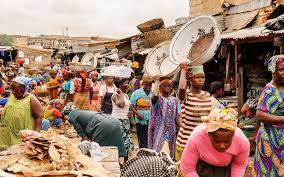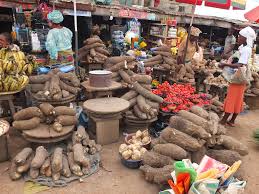According to official statistics released on Friday, Nigeria’s annual inflation rate increased to an 18-year high of 25.8% in August as the continent’s largest economy battles rising prices in advance of the central bank’s interest rate decision later this month.
President Bola Tinubu scrapped exchange restrictions and eliminated a popular but expensive decades-old gasoline subsidy in May. This enraged unions, who have threatened strikes, and caused prices for everything from food to transportation to soar.
The National Bureau of Statistics (NBS) said the rate of inflation increased for an eighth consecutive month from July’s 24.08%, aggravating the cost of living issue brought on by Tinubu’s policies.
Official data indicates that this amount of inflation was last witnessed by Nigerians in August 2005.Razia Khan, Standard Chartered managing director and head economist, Africa and Middle East, stated that “Nigerian inflation rose faster than expected in August, a month that more typically sees seasonally subdued inflation pressures.”
Nigeria’s inflation, according to economists, was mostly caused by the depreciation of the naira, rising gasoline and food prices, logistics expenses, and an expansion of the money supply.“In our opinion, only a portion of the subsidy lifting is reflected in the inflation numbers. The stance Nigeria took on monetary policy in the months before this result and the ongoing depreciation of the naira on the black market were two major factors contributing to the pre-existing pressure, according to Khan.
Against expectations from analysts, the central bank increased interest rates in July by a smaller-than-expected 25 basis points. On Sept. 26, rates are slated to be reset, and some experts anticipate a more hawkish posture.Food inflation, which makes up the majority of Nigeria’s inflation basket, increased to 29.34% in August from 26.98% in July, according to the NBS.
Tinubu, whose contested victory in the February presidential election was upheld by a judiciary last week, has declared he won’t renege on reforms. According to labor unions, reforms should be undone since they damage the poor.




















